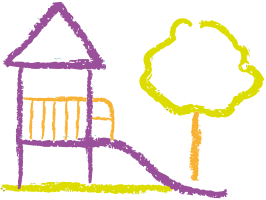On the 15th of March the Four Nations Play policy conversation was held. The key note speaker was Professor Helen Dodd from Exeter University.
In the second half of this video, Professor Helen Dodd reads Bob Hughes’ speech to Government. Please see the narrative behind these slides below:
The narrative
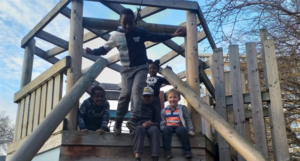
Experience shows that the great majority of adults, be they parents or Government officials regard children’s (self-directed) play as trivial and unimportant except for the contribution it makes to the efficacy/quality of their education, their health/well-being and/or their socialisation/citizenship.
However, as this short presentation will demonstrate, within self-directed play’s own free structure, exist vital empirical components not usually available in more structured environs;
that individually and collectively access or formulate benefits of fundamental importance to all children as a normal part of their daily free-play growing up, benefits which are at least as, if not more important to the child as anything provided extraneously.
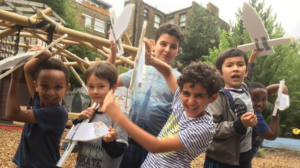
these give children direct access to an otherwise unknowable (Untransmissable) set of skills, through learning by absorption, monitoring and problem solving using what Bruner (1976) termed combinatorial flexibility, giving to children reflective, monitoring, forecasting and problem-solving skills that may, for example, make it possible for them to better adapt to changing environmental and atmospheric condition
However, perhaps even more significant is the effect of free (self-directed) play on the growth of brain and muscle tissue. That the human brain is a plastic organ has been known for some time (see for example Animal Play (1999) and Bernhardi’s (2017) The Plastic Brain), but plasticity’s relationship to activity during the period 0 to about six (Montessori) when play is also at its most intense is a more recent conclusion to draw.
Because of this apparent relationship we surmise, that children play because one of the evolved outcomes of playing is that brains and muscles do get bigger as a result and these changes are permanent.
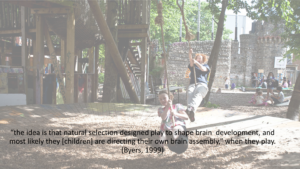
As is stated in Slide Two, free play is important in its own right, because children use it (intentionally although unconsciously) to increase the size and improve the organisation and structure of their brains. This may make it a primary evolutionary mechanism for brain growth
An attractive surmise is that It may even be that the different types of play referred to by Burghardt 1999, (four types) or Hughes 1996, (16 types)for example, are the empirical components that stimulate the growth of different parts of the brain.
A compound statement regarding free-play.
Free (ie self directed)play is designed by natural selection to enable the child to assemble and organise its own brain so that that brain ‘fits’ and ‘anticipates’ the child’s evolutionary needs(Byres, (1998, 1999a), Konner, (2010), Sutton Smith (1998), Brown (1998), Dennett (2013) , Clark (2013)
So what can be concluded/learnt from this that will benefit children? This is a brief conclusion as more will follow on its benefits from the contributions from other colleagues.
Implications for Policy and Practice.
It is safe to assume that life post-pandemic is different to life pre pandemic and many children’s post behaviour will reflect shortages of space, screen based interraction, inadequate equipment and furniture, missed friends, the constant presence of adults, dislike of masks, missed lessons, bubbles and so on. Children with disabilities will have been particularly affected by these restrictions.
So, what to do.
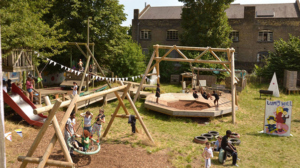
Needless to say, neither the policy (nor the practice which emanates from it) is intended to do anything other than support children as they pass through childhood, but note the absence of the word adult in the above paragraph. Free play anticipates a childhood experience which is governed by the children themselves whilst acknowledging all the above as potential outcomes of interactions between the child and the many different aspects of the environment. Eg height, surprise,Colour, taste smell, touch, sound, fire, building, relationships etc
Thus ideally, neither parents, teachers nor others with an authority role should take on more than a distance supportive or supervisory role However, should they insist and many have, invite them to suggest to you, what their chid/ren is capable of in terms of skills.




